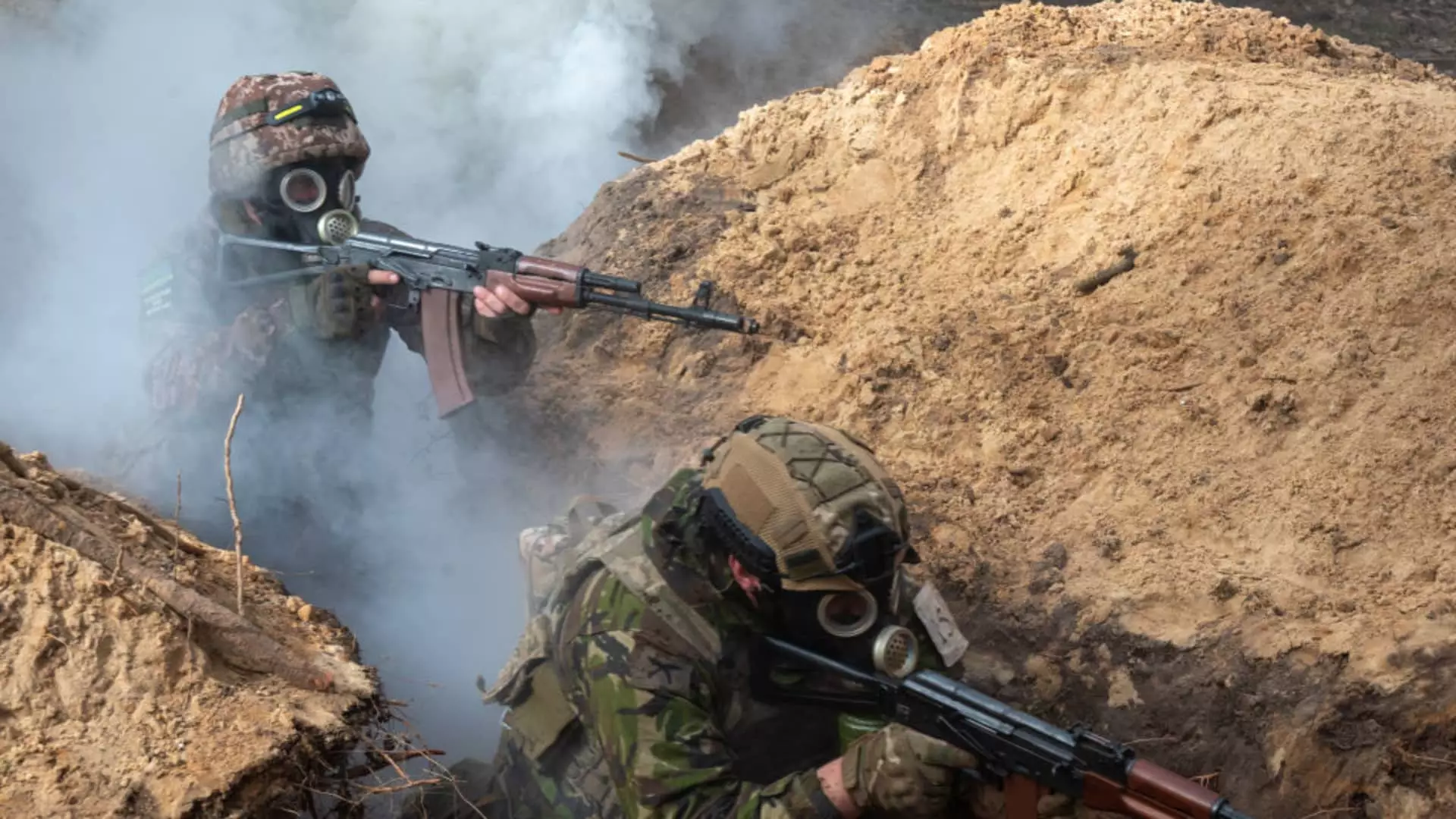The recent accusation by the U.S. against Russia for using chemical weapons against Ukrainian troops has escalated tensions between the two nations. The U.S. State Department released a statement accusing Russia of violating the Chemical Weapons Convention by using chloropicrin, a choking agent, against Ukrainian forces. This accusation has led to the imposition of more sanctions on Russian individuals and entities. This move signifies a severe strain in diplomatic relations between the U.S. and Russia.
Russian Response
In response to the accusations, the Kremlin’s Press Secretary Dmitry Peskov dismissed the claims as unfounded. He stated that Russia remains committed to its obligations under international law and denied any involvement in using chemical weapons in Ukraine. The back and forth between Russia and the U.S. highlights the complexity of the situation and the challenges in finding a resolution.
Chloropicrin, the chemical agent allegedly used by Russia, was previously used as a poison gas in World War I but is now commonly used in agriculture as an insecticide. Despite not being authorized for military use, chloropicrin poses serious health risks. When inhaled, it irritates the respiratory tract, including the nose, throat, and lungs, causing significant damage to those affected. The use of such harmful chemicals in warfare raises ethical and moral questions about the impact on civilians and the environment.
Both Russia and Ukraine have denied each other’s claims of using chemical weapons. The lack of concrete evidence from either side adds to the confusion surrounding the situation. Soldiers on the battlefield have reported injuries suspected to be caused by chemical agents, but without proper verification, the allegations remain contentious. The accusations of using tear gas, another prohibited method of warfare, further complicate the already tense relations between the two countries.
International Obligations
The Chemical Weapons Convention, in effect since 1997, aims to eliminate the production, stockpiling, and use of chemical weapons worldwide. Russia, along with 193 other countries, ratified the convention, committing to declare their stocks of banned chemical weapons and destroy them. The accusations against Russia for violating the CWC demonstrate a blatant disregard for international treaties and agreements designed to prevent the use of deadly chemical agents in armed conflicts.
Political Ramifications
The ongoing accusations and denials between Russia and the U.S. have broader implications for international politics. The use of chemical weapons, whether confirmed or alleged, raises concerns about the escalation of violence and the impact on civilian populations. The comparison drawn between Russia’s actions in Ukraine and previous incidents involving poisoned nerve agents like Novichok underscores the gravity of the situation. The need for accountability and transparency in addressing these accusations is crucial for preventing further escalation and promoting peace.
The accusations of Russia using chemical weapons in Ukraine have far-reaching implications that go beyond just the conflict between the two nations. The political, ethical, and humanitarian consequences of such actions highlight the importance of upholding international laws and agreements to prevent the use of deadly weapons in warfare. The need for a thorough investigation, accountability, and dialogue between all parties involved is essential for finding a resolution to the conflict and ensuring the safety and security of all individuals affected by these allegations.


Leave a Reply